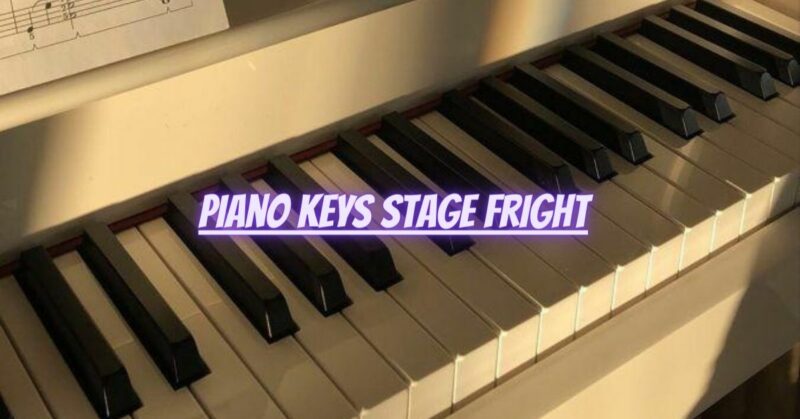Stage fright, also known as performance anxiety, is a common experience among pianists and musicians. The overwhelming fear and nervousness before and during a piano performance can be daunting, but it’s essential to remember that you are not alone in this struggle. Many accomplished musicians have faced stage fright at some point in their careers. The good news is that with the right strategies and mindset, you can conquer stage fright and approach the piano keys with confidence and poise. In this article, we’ll explore various techniques to help you overcome stage fright and make your piano performances a rewarding and enjoyable experience.
1. Acknowledge Your Emotions:
It’s normal to feel nervous before a performance, and it’s okay to acknowledge those feelings. Instead of fighting or suppressing them, accept them as a natural part of the process. Understand that being nervous is a sign of caring deeply about your performance.
2. Be Well Prepared:
Thorough preparation is one of the most effective ways to combat stage fright. Practice your piano pieces diligently, until you feel comfortable with them. The more prepared you are, the more confident you’ll feel on stage.
3. Visualization Techniques:
Use visualization to mentally rehearse your performance. Close your eyes and envision yourself on stage, playing confidently and passionately. Visualization can help build positive associations with performing and reduce anxiety.
4. Breathing and Relaxation Exercises:
Practice deep breathing and relaxation techniques before going on stage. Take slow, deep breaths to calm your nerves and release tension from your body. Relaxation exercises can help lower your heart rate and promote a sense of calmness.
5. Positive Self-Talk:
Replace negative thoughts with positive affirmations. Remind yourself of your skills, accomplishments, and musical abilities. Practice self-encouragement to boost your confidence and belief in your talents.
6. Start Small:
Begin with smaller performance opportunities, such as playing for family or friends, before tackling larger public settings. Gradually exposing yourself to performing can help desensitize you to the anxiety.
7. Connect with the Music:
Shift your focus away from yourself and towards the music. Concentrate on expressing the emotions and messages conveyed through the music. Remember that music is a powerful form of communication that connects performers and audiences.
8. Embrace Imperfection:
Accept that making mistakes is a natural part of any performance. Instead of fixating on perfection, focus on conveying the emotions and essence of the music. Embrace the beauty of live music, where every performance is unique.
9. Practice Performing:
Simulate performance situations during your practice. Play for an imaginary audience, record your performance, or perform for a small group of supportive friends. This helps you get used to the pressure of performing and builds confidence.
10. Seek Support:
Share your feelings with fellow musicians or seek guidance from a music teacher or coach. Sometimes, talking about your stage fright can be comforting, and others may offer valuable advice and encouragement.
Conclusion:
Stage fright may be an unavoidable part of the musical journey, but it doesn’t have to control your performances. By acknowledging your emotions, being well prepared, using visualization techniques, and practicing relaxation exercises, you can face the piano keys with confidence. Remember that every musician, no matter how experienced, has faced stage fright at some point. Embrace your nerves as a sign of passion for music and performing. With time and practice, you can develop the ability to channel that nervous energy into a powerful and expressive performance. The joy of making music is meant to be shared, so take a deep breath, step onto the stage, and let your love for the piano keys shine through your performance. Happy playing!


